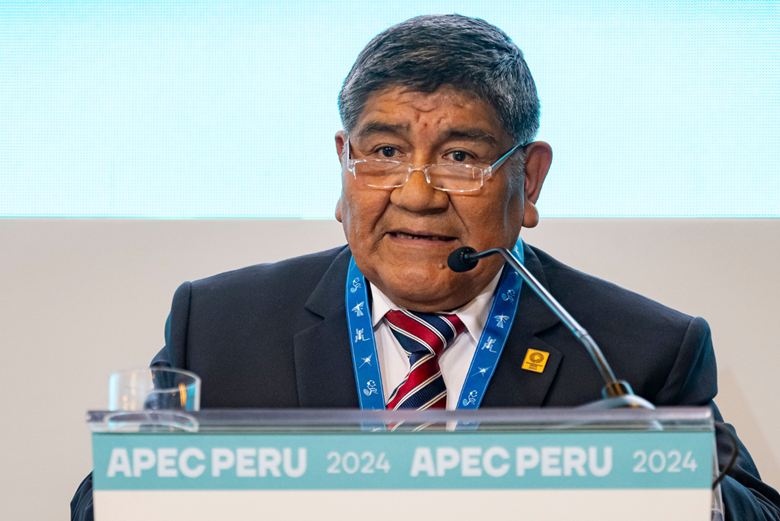
APEC member economies are intensifying cooperation to harness the power of clean and low-carbon hydrogen as a key component of the region's sustainable energy future.
At a workshop hosted by APEC Peru 2024 in Lima on Sunday, policymakers, industry leaders, and researchers shared best practices, discussed challenges, and explored opportunities for integrating hydrogen into the energy mix. Members are focused on creating roadmaps that set clear targets, establish market-driven indicators, and outline actionable steps to scale up clean and low-carbon hydrogen production.
"In the face of the short-term difficulties presented by the energy and climate crisis, our economies have assumed an increasingly decisive role in global trade and renewable energy supply chains," said Rómulo Mucho, Peru's Minister of Energy and Mines in his opening remarks. "At the same time, our economies face the challenge of a transition towards a more sustainable, resilient, and inclusive development."
"Energy resources will therefore continue to play an essential role in contributing to this transition," added Minister Mucho. "A demand for secure, affordable, reliable and sustainable energy will generate collaborative dynamics that drive our economies to overcome the challenges in our energy matrix."
WATCH: Peru Senior Official Renato Reyes on Pioneering Cooperation on Low-Carbon Hydrogen
A panel of experts discussed the implementation of projects aimed at transitioning from fossil fuels to clean energy sources. The session highlighted the need for harmonized regulatory frameworks and innovative financing mechanisms to drive the adoption of hydrogen technologies, taking into account the other stages of the sector's value chain: transport and electricity generation.
"Despite increased attention on clean and low-carbon hydrogen in recent years, its future viability as a clean, low emission energy source remains uncertain," said Dr Kazutomo Irie, president of the Asia Pacific Energy Research Centre (APERC).
Dr Irie pointed to cost competitiveness and the delay in the development of infrastructure among the key challenges that could throw the widespread adoption of clean and low-carbon hydrogen.
"Technological advancements, economies of scale and the cumulative production will reduce costs," Dr Irie explained. "Until substantial cost reductions are realized, the commercial development of a clean, low-carbon hydrogen market will heavily rely on supportive government policies, including subsidies, which vary widely among economies."
Participants also shared insights on developing domestic hydrogen strategies, emphasizing the importance of cross-border collaboration to achieve regional energy goals. Representatives from China, Indonesia, Japan, Korea, Chinese Taipei and Thailand provided diverse perspectives on the challenges and successes of hydrogen initiatives in each economy.
A dedicated session underscored the critical role women play in the hydrogen and renewable energy sectors. Speakers explored how women are breaking barriers and shaping policies that promote sustainable practices and clean technologies.
"APEC's commitment to advancing hydrogen technologies reflects the region's leadership in promoting innovative solutions to global challenges and driving sustainable economic growth," said Ariadne BenAissa, lead shepherd for APEC Energy Working Group.
The workshop concluded with a call to action for APEC economies to continue collaborating on hydrogen initiatives, ensuring that the region remains at the forefront of the global clean energy transition.
Later this week, Minister Mucho will host his counterparts for the APEC Energy Ministerial Meeting in Lima on 15-16 August. They will further deliberate on strategies and technologies to ensure just, inclusive and sustainable energy transitions, as well as policies and actions for hydrogen development in APEC economies.






